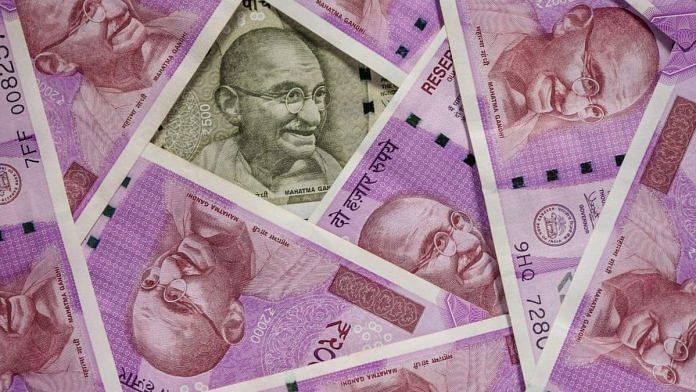New Delhi: Indian states are facing a massive cash crunch due to rising expenditures and falling revenues on account of the Covid-19 pandemic and the subsequent lockdown that has lasted for more than two months.
But the financial position of the states is likely to worsen in the coming months, as the central government reduces its fund transfers to reflect actual tax collections.
A complete halt in economic activity has seen tax revenues of both the Centre and the states plunge. Both direct tax and GST collections have contracted sharply in the first two months of 2020-21. The government, has so far, not released any tax collection data.
Also read: States need more funds from Modi govt to ensure vulnerable are protected during Covid: Paper
April and May tax devolutions
So far, in April and May, the central government transferred the states’ share in tax devolutions based on the tax collections estimated for the year. However, the actual tax collections are much lower.
“The money was transferred to the states based on budgeted estimates as the central government was conscious of the fact that the states needed revenues to battle the pandemic. But at some point, the transfers have to reflect the actual tax collections,” said a finance ministry official who did not wish to be identified.
The Centre released the April and May instalments of the devolution, amounting to Rs 46,038 crore for each month, based on calculations that the states’ share for the full year would be Rs 5.52 lakh crore.
States get 41 per cent of the total taxes collected by the Centre, according to the recommendations of the 15th Finance Commission for the year 2020-21.
States’ dire financial position
States have been demanding greater financial assistance from the central government, including timely payments of GST compensation and different grants.
The official quoted above said as the lockdown is lifted, states should see a revival in economic activity, and consequently, an increase in tax revenues, and added that the Centre has also allowed the states to borrow more this fiscal.
The official was referring to the central government’s decision to allow states to borrow up to 5 per cent of the gross state domestic product, as against the earlier limit of 3 per cent. This would give states an additional borrowing space of more than Rs 4 lakh crore, but the Centre has made it subject to conditions.
However, the situation for states has worsened to the extent that they have been forced to borrow from the markets to meet their most basic expenditure needs, like payment of salaries. Many states like Telangana, Kerala and Odisha have also deferred a part of the salary and pension payments to the employees and elected representatives, in an effort to protect cash flows.
Maharashtra is also reportedly facing an acute cash crunch and has resorted to borrowing from the markets.
Delhi Chief Minister Arvind Kejriwal has also requested the central government for Rs 5,000 crore to pay salaries of government employees.
Emkay Global Financial Services, in a note on 1 June, pointed out that 23 states recorded their lowest growth in tax collections in 2019-20, and this is likely to worsen in 2020-21, adversely impacting capital spending. It pointed out how states’ tax collections may be worse off than the Centre’s due to the rising proportion of central revenues collected through cesses. The cesses imposed by the Centre are not part of the divisible pool.
Also read: Modi govt’s conditional offer to states on borrowing and the controversy around it



